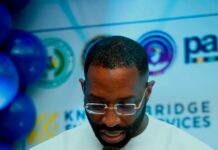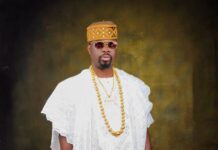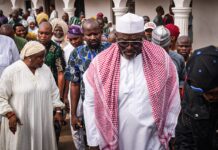The Presidential Candidate of the Peoples Democratic Party (PDP), Alhaji Atiku Abubakar, has been lauded for having what it takes to turn the country’s ailing economy around if elected President in 2023.
A political support group, the South-West Media Outreach for Atiku Abubakar, (SWMOFAA), in a statement signed by its Coordinator, Mr. Kola Ilori, and made available to the media, said that among all the presidential candidates, Atiku is the best qualified for the task of stopping the rot that the All Progressives Congress (APC), government inflicted on the country.
Noting that Atiku has done it before, as Vice President under his boss, former President Olusegun Obasanjo, between 1999 and 2007, with the country then a destination of choice for foreign investors, Ilori said that the roadmap to recover and rebuild the country was recently espoused by Atiku at the 2022 Lagos Business School Alumni Conference.
Ilori averred that Atiku, in the presentation, titled: ‘Creating an Enabling Environment for Businesses in Nigeria,’ highlighted five priority areas to be focused on to make the country better, which include: re-unify the country; improve security; revive the economy and foster prosperity; restructure the federal system and improve human capital.
He said that the former Vice President lamented the situation in the country, saying, “We have extremely high rates of unemployment and inflation, with the naira losing its value on a daily basis. Hunger is more pervasive today than it has ever been in the history of our resource-rich country. The majority of the unemployed are young men and women, who are increasingly frustrated by the lack of opportunities and hope for the future.This poses serious economic and security challenges.
“Our educational and health care systems are in shambles. Our infrastructure is broken and grossly inadequate to help stimulate economic growth. Even the oil and gas sector, the main source of government revenues and foreign exchange, has been declining for much of the period since 2014. Per capita income, a measure of citizens’ wellbeing, has progressively fallen since 2015 because of declining output in the face of continuing population growth.”
Ilori insisted that the Atiku/Okowa ticket offers the best for the country as Atiku once headed the economic team that implemented fundamental economic reforms, including the design and implementation of a private sector revival strategy.
He added that the economic team under Atiku focused on macro-economic stability and transforming critical areas such as banking, insurance, oil and gas, telecommunication, pension and the civil service.
Atiku had said in his presentation, “We created novel institutions that should lay the foundation for good governance and accountability such as the Bureau of Public Procurement, Economic and Financial Crimes Commission (EFCC), and SERVICOM, whose golden rule is “Serve others as you would like to be served.”
Ilori stated further that Atiku’s economic and development agenda, which is a part of his covenant with Nigerians, is designed to stimulate the growth of the economy, noting that it envisions an economy that is modern, dynamic, competitive, and able to rank among the top 20 economies of the world.
Atiku also added, “Specifically, we plan to build an economy that would remain the largest in Africa and become the 15th largest globally, with a GDP per capita raised from the current levels of approximately US$2,000 to US$5,000 by 2030. Growth will come from our efforts to revitalize the real sectors, including: agriculture, manufacturing and micro, small and medium enterprises. Production for export wil be a top priority, with emphasis on manufactured goods.
“My economic plan is anchored to three principles, namely: Private Sector Leadership; Leveraging the Market to set Prices; and Ending Government Monopoly in key sectors. So, firstly, a government that I lead will support the private sector to provide critical
leadership and drive growth. In return, the private sector will provide funds, create jobs and wealth and lift the poor out of poverty.”






